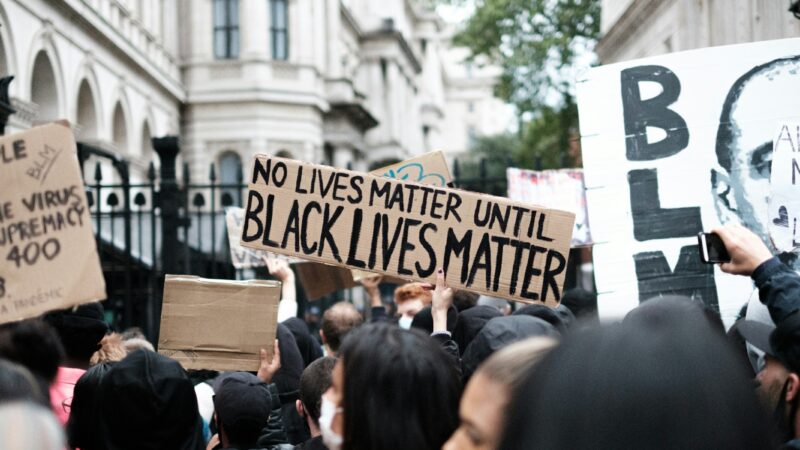“I’m a pessimist because of intelligence, but an optimist because of will.”
– Antonio Gramsci
Like all disaffected individuals who supported the Conservatives in 2019, I too find solace in the work of a certain Italian Marxist philosopher and his insights. The simplicity of that quote often speaks to a dormant impulse in the human condition, the belief that things really can change; that, when everything is said and done, we will win. We must, as President Trump once said: “…treat the word ‘impossible’ as motivation.”
In the history of Great Britain, this nation has faced many challenges and many dark days. Those dark days still lay ahead, for that can be assured. Those obstacles within our national politics seem numerous: civil servants, fifth columnists, various media establishments and even entire political parties which claim to represent the interests of the country. Out of this election, it is plain as day. Labour will win, through sheer dullness and the fact that Sunak has clearly given up and not even attempted to try during this race for his own premiership. The reason why people do not like Sunak is because, at his core, he represents ultimately why people do not like Conservatives or politicians in general. They are mostly losers who want to be liked and be seen as important by others; they want to be winner but have never fought truly for anything in their lives. It is for this reason, they are not worthy of any votes or seats. It is not because they have fought and failed, it is that they have never even tried or put up a fight.
From this, the only cure that needs to be given is that of Zero Votes and Zero Seats. Vote Reform now, Cummings later. This can be summarised as voting Reform now to give the Conservatives zero seats, thus ending them (at least, as much as possible) as a political force within Great Britain. Out of this, we should unite around a different right-wing party, one that genuinely seeks to change the direction of the country and prepared to ask and answer the questions that matter. Why are we having these problems? Why are people struggling to buy a house? Why is this country declining?
Following on from this, it is clear that Farage is here to stay and can become a massive nuisance for the administrative state, the state that is allergic to change and remains prestige-orientated. As such, Farage is not the man who will do these things; he is a media personality, not someone who is interested in the nitty gritty of continuing (starting with Brexit) a decade-long (if not century-long) process of fixing the foundational issues of this country. Farage is an Einstein in an Oppenheimer world, it would seem.
Farage understands the need for generating a new excitement around a political issue, he understands that nothing is impossible, even that the mere usage of the word should be taken as motivation. Indeed, his lifelong struggle to get Britain to leave the EU is one such endeavour which, even at the best of times, felt like an ultimately impossible task until it wasn’t. This is not dissimilar to Trump, a figure who isn’t sensitive to the nuance of details, but fundamentally understands the broad picture, why things needs to change, and how to go about doing it.
As such, one hopes that if Reform becomes akin to UKIP, they can become a political force that asks the big questions that the majority of the population want asked. Additionally, Reform should be able to shift the Overton window on a series of issues, bringing them to the forefront of politics from outside of the mainstream political parties. These should range from immigration, the economy, the housing crisis, and the need to dismantle the administrative state.
This being said, like UKIP and the Brexit Party before, when Reform has kicked through the door, it should again vanish. By the end of the decade, Reform should be as important as UKIP is in 2024. Reform should not be here to stay in the long term. Now that it seems possible that Reform will replace the Conservatives, just as the Labour replaced the Liberals throughout the 1920s, allowing them to fully turn their guns on Labour, exposing them as being no better. Of course, Labour is not up to the task of governing and will almost certainly do damage to Britain. Given that Starmer is a wet lettuce of a man, unlikely to last long in post, they’ll have plenty of material to work with.
From this, Reform can generate space for something to be built for the 21st Century, something with real long term vision and purpose. Insert “assorted weirdos” reference here. Indeed, it is rather fitting that the two individuals that are attempting to offer real alternatives to the current issues facing this country are the same two which brought Brexit home (twice if you count the 2019 general election). Now we could realistically see this occur again. Farage’s media personality pushing the core issues into the forefront of British political life, while Cummings dominates the nitty gritty of how to get from ‘A’ to ‘B’ and securing the real victories. Additionally, both men want the complete destruction of the gate keeping Conservatives and are radically anti-establishment and Westminster, something the vast majority of the electorate share.
Although Cummings has modelled his work on Singapore’s People’s Action Party (I would encourage all to read ‘From Third World to First: The Singapore Story: 1965-2000’), and its stewardship under Lee Kuan Yew, it is another Southeast Asian leader that he should also look at too. Ho Chi Minh (hear me out), and his leadership of North Vietnam, can be summarised as that of revolutionary self-belief and determination. The clinical and principled nature of Singapore, combined with the zealous optimism of Vietnam, would propel the country back into a forward-thinking, functioning 21st Century nation state. It should be hoped that, when Cumming’s Party is ready and the door has been blown open by Farage’s Reform, it too should move into place. A tech-focused, big tent, anti-establishment party that seeks to radically fix the core issues within the country. Radically reduce immigration, tackle the wealth disparity and tax avoidance, and dismantle the permanent administrative state.
In conclusion, Politics is Never Over. Things have returned to being interesting – we could witness another realignment in our national discourse. This should be motivating for people like Farage and Cummings. We can smell blood right now on both Starmer and Sunak, so we must take this chance to end the declinist duopoly once and for all, and scramble to build something in its place thereafter. As Farage stated in a mere four words: “We’re just getting started.”



